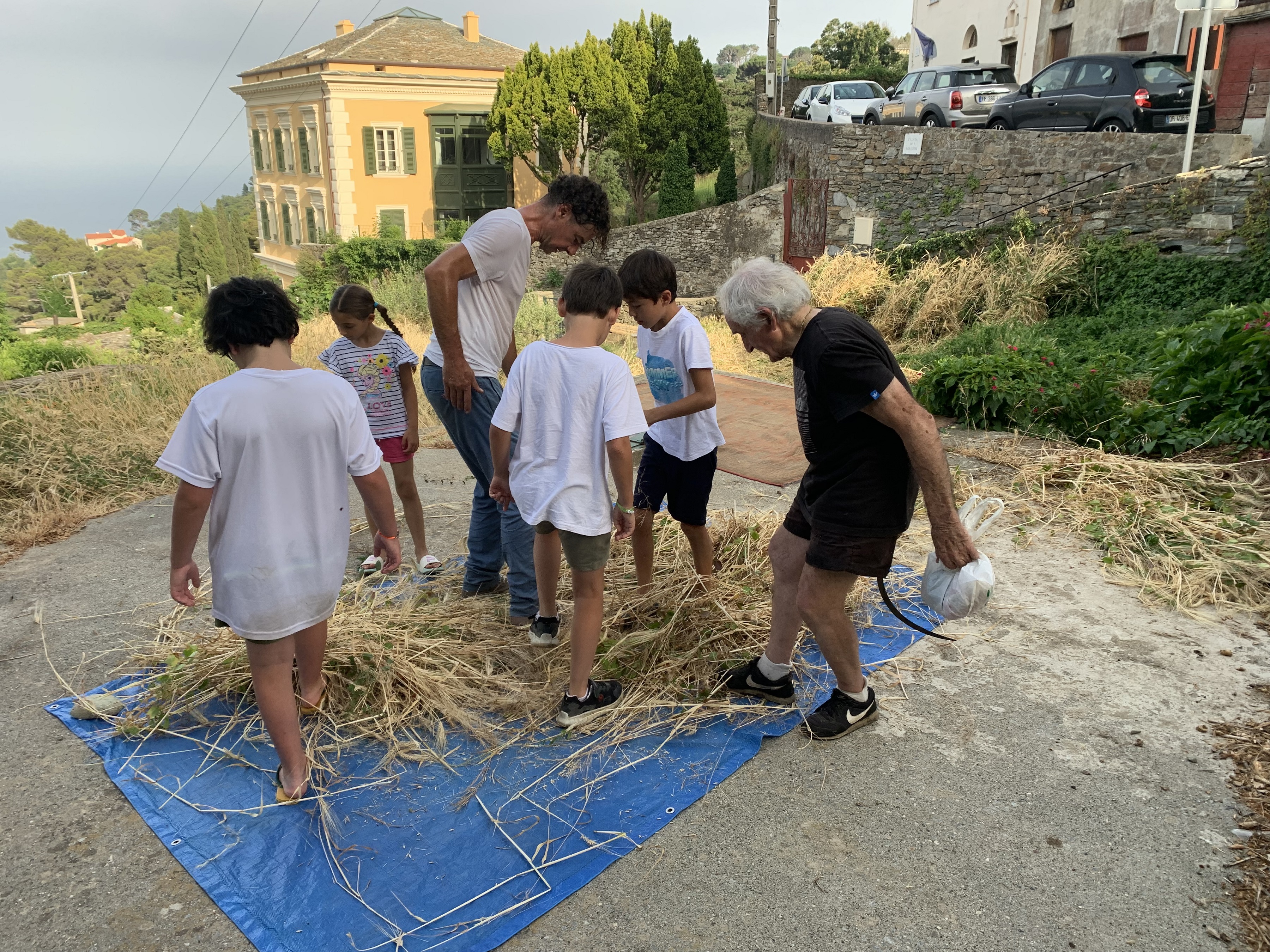Which came first, the egg or the bus? In the case of Linda Caroni (28) and Chrigu Marti (29), the case is clear: It all started with the fresh chicken egg from Chrigus Elternhof at the end of February. Step by step, the Bernese couple wants to fulfill their dream of owning their own campervan. By swapping.
“In the beginning, we actively approached people or inquired about it in shops and second-hand stores,” says Caroni. With success. After only three hours, the two had exchanged their chicken egg for a spool of thread. And the experiment took its course.
The idea is simple: swap items with a small increase in value until they slowly but surely become more valuable. Time doesn’t matter. It should only be fun and arouse the joy of swapping.
The dream of a home on wheels
The social worker and civil engineer came up with the idea for the bartering frenzy during their trip through Argentina last winter. The two of them often sat in public transport, sometimes twenty hours at a time, and watched the most beautiful landscapes pass by through the bus window. “But of course we couldn’t just stop and get out,” says Marti. So the two began to dream of more flexibility and independence – in the form of their own “Bössli”.
As soon as we got home, we started. After the egg and spool of thread came a poncho, which they exchanged for a traffic sign, which in turn was exchanged for a bedside table, a saucepan and a flute.
From the hairpin to the house
While barter projects in Switzerland are isolated cases, in America they lead to gigantic successes. In May 2020, 30-year-old Demi Skipper from San Francisco announced on Tiktok that she wanted to swap her own house. Five million followers watched Skipper on social networks as she exchanged a house worth tens of thousands of dollars in 28 barter transactions in a year and a half.
–
While barter projects in Switzerland are isolated cases, in America they lead to gigantic successes. In May 2020, 30-year-old Demi Skipper from San Francisco announced on Tiktok that she wanted to swap her own house. Five million followers watched Skipper on social networks as she exchanged a house worth tens of thousands of dollars in 28 barter transactions in a year and a half.
—
Today, three months later, Caroni and Marti have reached seven objects at once: a designer sofa, a bicycle, a bicycle rack, a pair of hiking shoes, two wristwatches and a new screen.
“You have so many things lying around at home that you don’t really need,” says Chrigu Marti. The couple’s goal: to inspire themselves and others to question these objects and, at best, trade them for something they would much rather own instead. Among other things, they want to use the project to set an example against consumerism.
A moneyless experiment at a time when bartering has almost died out. “If we need something in Switzerland, we simply buy it,” says Linda Caroni. In spite of this, or precisely because of this, the project is met with enthusiasm.
Every exchange has its story
There is a buzzing noise in Marti’s pocket. An hour ago, he posted a photo of the latest exchange item on social media: a Samsung screen. And the first messages from interested parties are already arriving. In addition to the posts on Facebook, Instagram and Tiktok, the two record a podcast episode for each subject, which can be heard on Spotify and Apple Podcasts under the name “TuschRusch”. Because every exchange has its story.
For example, the story of the enthusiastic music teacher who was looking for a flute at the very time the couple had one on offer. The booty: two bicycles. Or the story of the nice second-hand shop owner who took on a traffic sign – actually a hopeless case. The booty: an antique bedside table. “We’ve met so many great people through the project,” says Marti.
It was not planned that the two now own seven items at a time. “Actually, we always wanted to exchange one object for the next,” says Marti. But people wanted to support the two. So they got three wristwatches for a bedside table, and even a freezer as a gift. Now they are trying to turn the individual items back into fewer, but more valuable ones.
«Buying a Büssli would be much easier»
Posting pictures, recording podcasts, writing to people and meeting them, organizing transport and storage: “We have so much fun with the experiment,” says Linda Caroni. But it takes time and effort. “Just buying the coach would probably be a lot easier,” she says and laughs. But the couple wants to see their project through as far as possible. Swapping frenzy instead of buying frenzy.
And what if they fail? “As an emergency plan, we exchange several items for a Büssli facility and an empty van. We then rebuild it ourselves,” says Marti. But if it works out, the two will soon be spending their first vacation on the beach in Portugal. “But who knows,” says Caroni. Because if the two of them have learned something from their project: Everything turns out differently than planned anyway.
–


